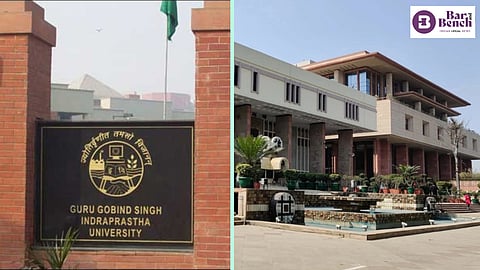The Delhi High Court on Wednesday questioned the legislative competence of the Delhi assembly to pass a law allowing Guru Gobind Singh Indraprastha University (GGSIPU) to provide affiliation to colleges located outside Delhi [Shashank Deo Sudhi v Union of India & Ors].

